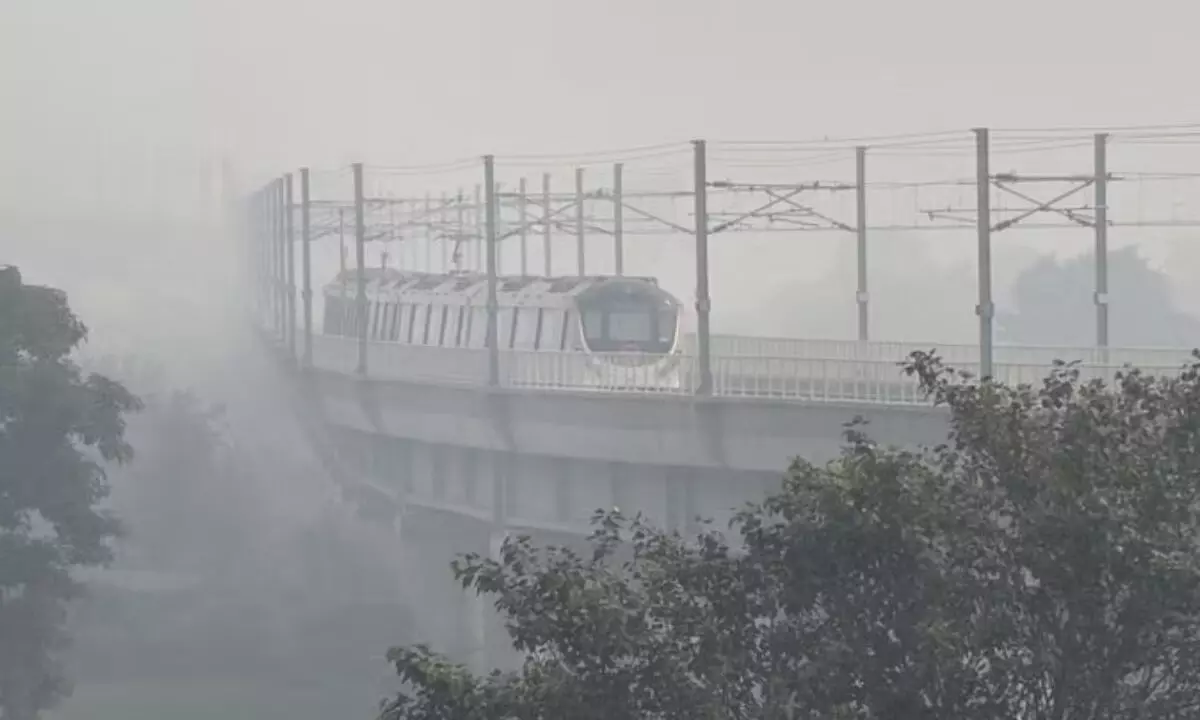Delhi Metro Responds To Pollution Crisis With 40 Additional Weekday Trips

- In response to escalating pollution levels in Delhi, the Delhi Metro Rail Corporation (DMRC) will introduce 40 extra trips on weekdays starting from October 25th.
- This decision, which follows the activation of Graded Response Action Plan (GRAP)-II measures to combat the pollution crisis, aims to enhance public transportation options and reduce vehicular emissions in the national capital.
In an effort to address the city's pollution problem, the Delhi Metro is set to increase its weekday services with an additional 40 trips starting from October 25. This move comes in the wake of the activation of Graded Response Action Plan (GRAP)-II measures aimed at combatting pollution in the national capital.
Typically, the Delhi Metro operates over 4,300 trips daily, as reported by the DMRC. To bolster pollution mitigation efforts, district officials will conduct on-site visits to ensure the strict enforcement of these measures.
Furthermore, the Delhi government has been directed to augment its bus services through the 'Paryavaran Bus Sewa' campaign, enhancing public transportation options and reducing vehicular emissions.
This week, the Delhi government identified eight additional pollution hotspots, adding to the existing 13 within the city. Delhi's Environment Minister, Gopal Rai, has announced the deployment of special teams to investigate pollution sources. Rai has also issued orders for the application of dust suppressant powder to combat dust pollution in the city. These special teams will work alongside the Delhi Pollution Control Committee to identify and rectify pollution sources. The Minister emphasized the need for dedicated efforts over the next month, as air pollution is expected to peak.
Officials from the India Meteorological Department have forecasted that the air quality in Delhi-NCR will remain 'very poor' in the coming days due to decreasing temperatures and the influx of emissions from stubble burning.
According to the Union Environment Ministry, farm fires were responsible for a significant share of Delhi's PM2.5 pollution, accounting for 34% on November 3 last year and 48% on November 7 in 2021.
The Commission for Air Quality Management (CAQM), a statutory body tasked with implementing the pollution control plan, GRAP, has directed authorities in the National Capital Region (NCR) to raise parking fees as a means to discourage private transport. Additionally, CAQM aims to enhance the availability of CNG or electric buses and metro train services in anticipation of rising pollution levels."














